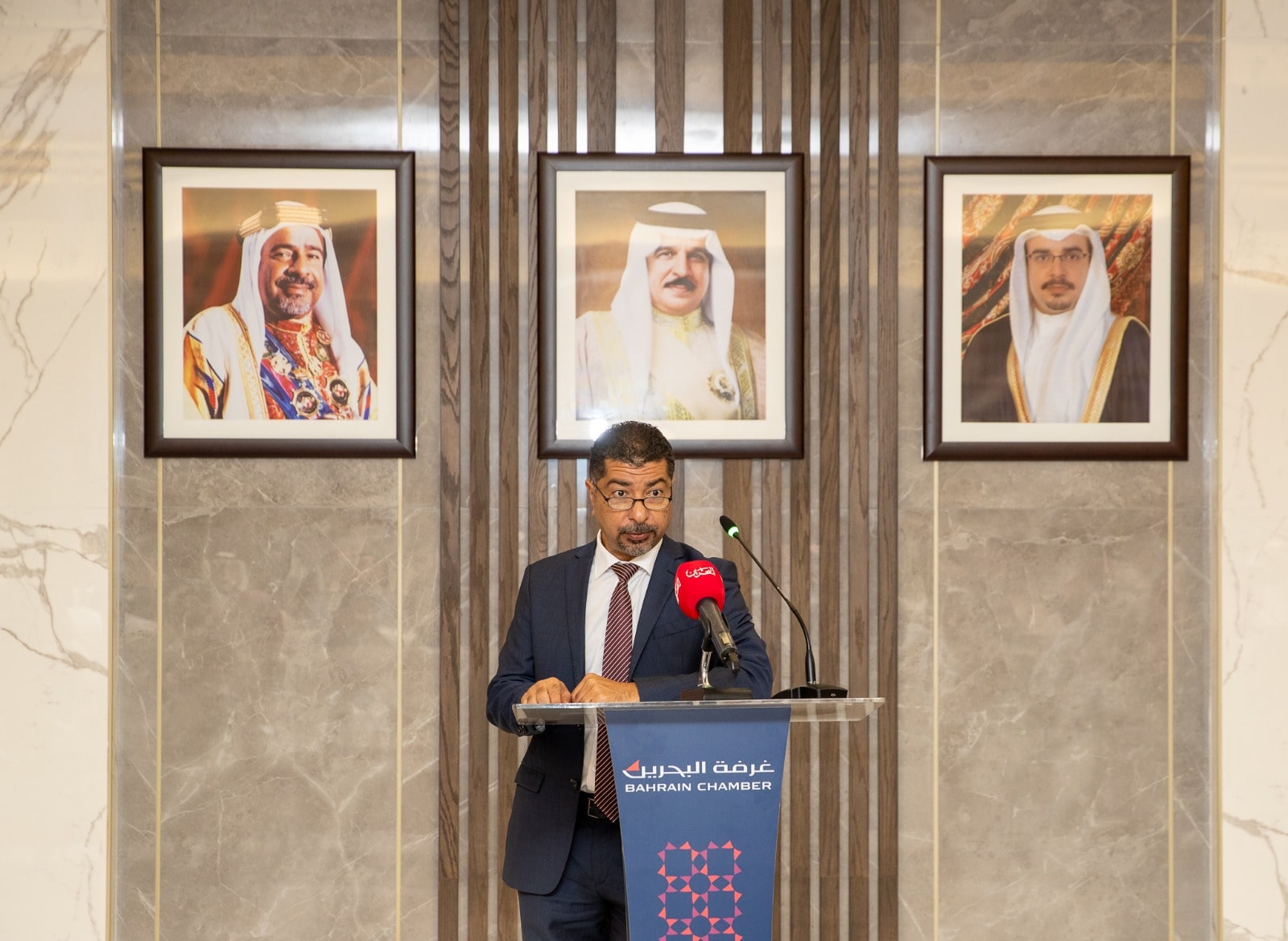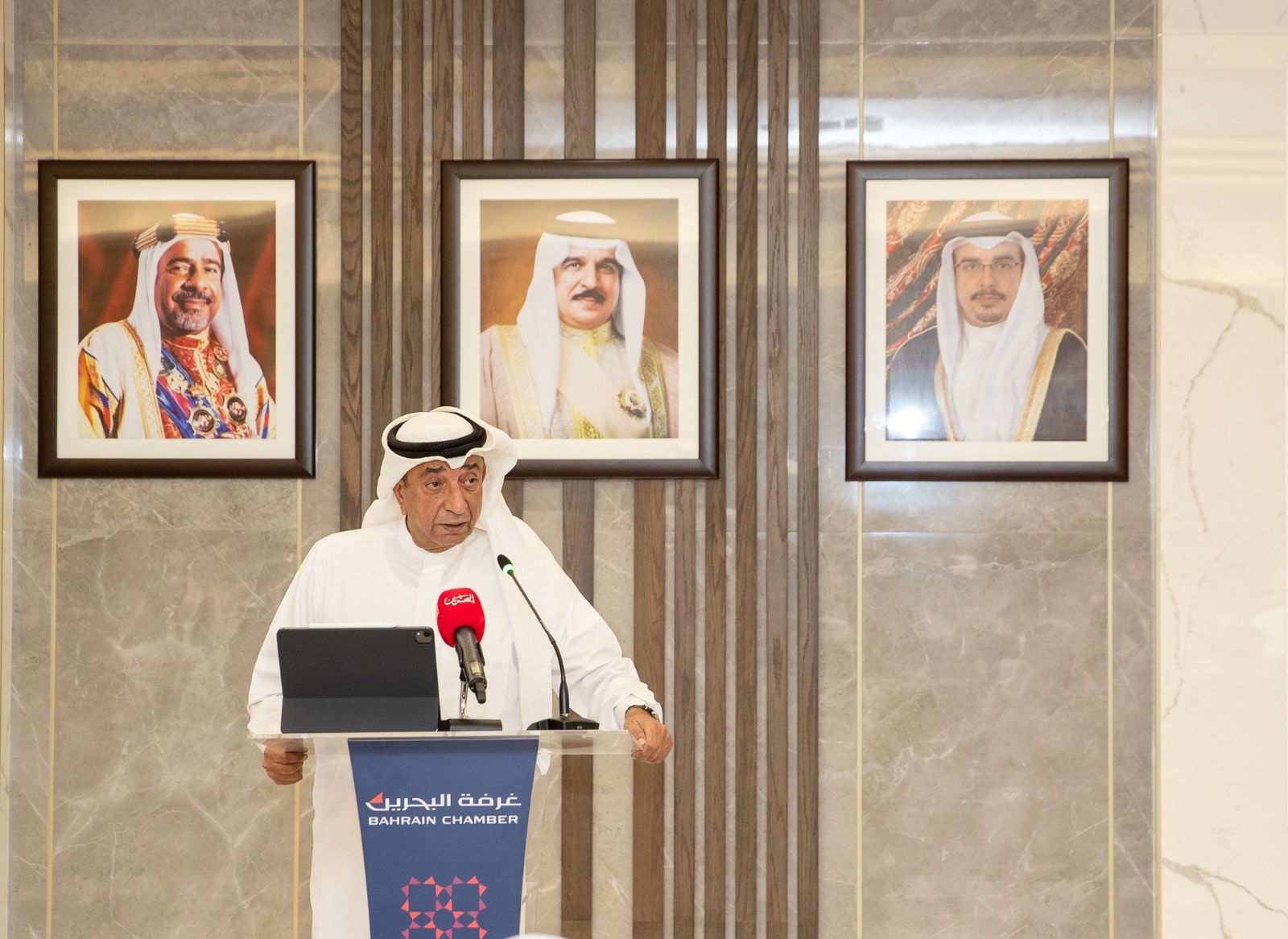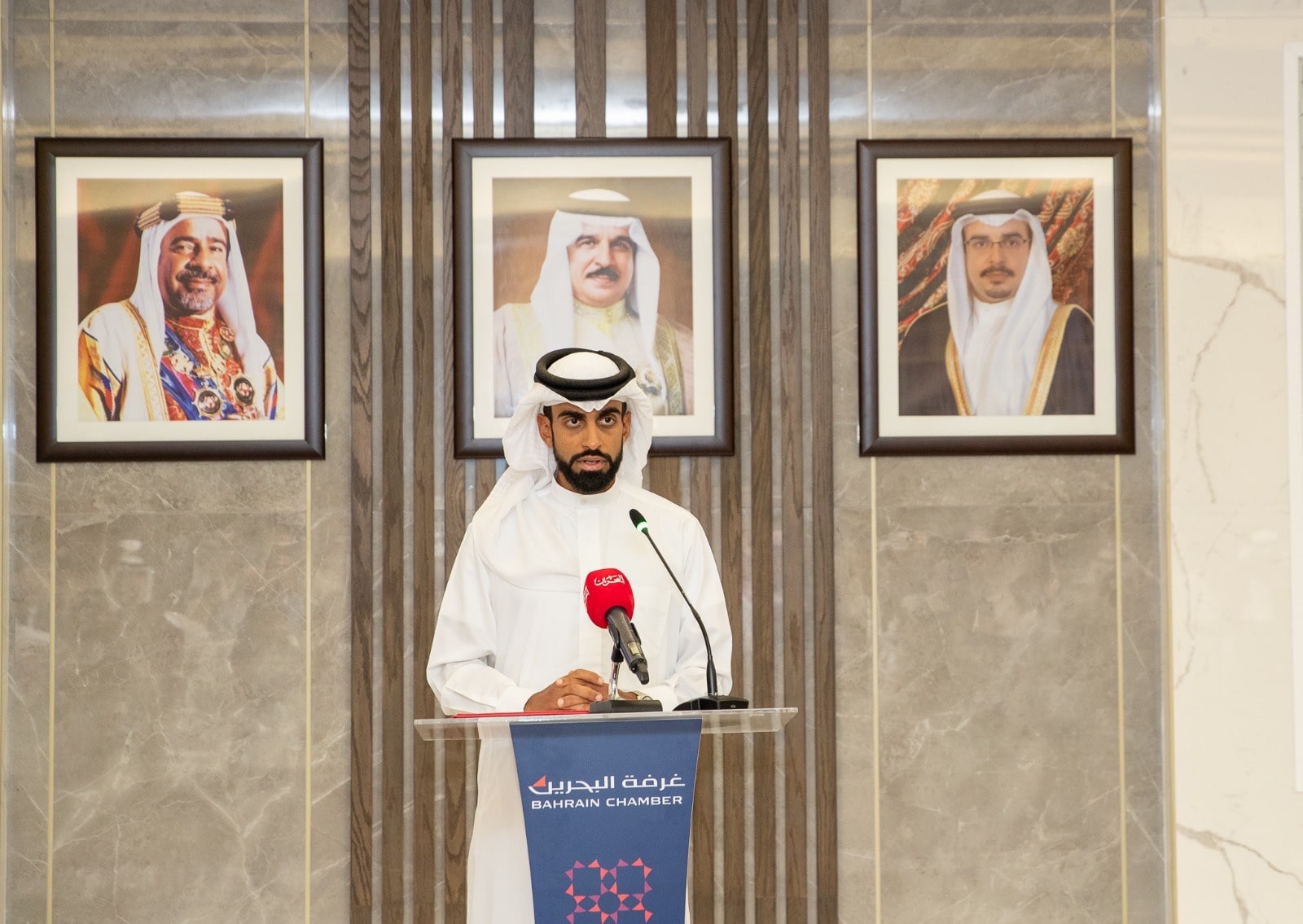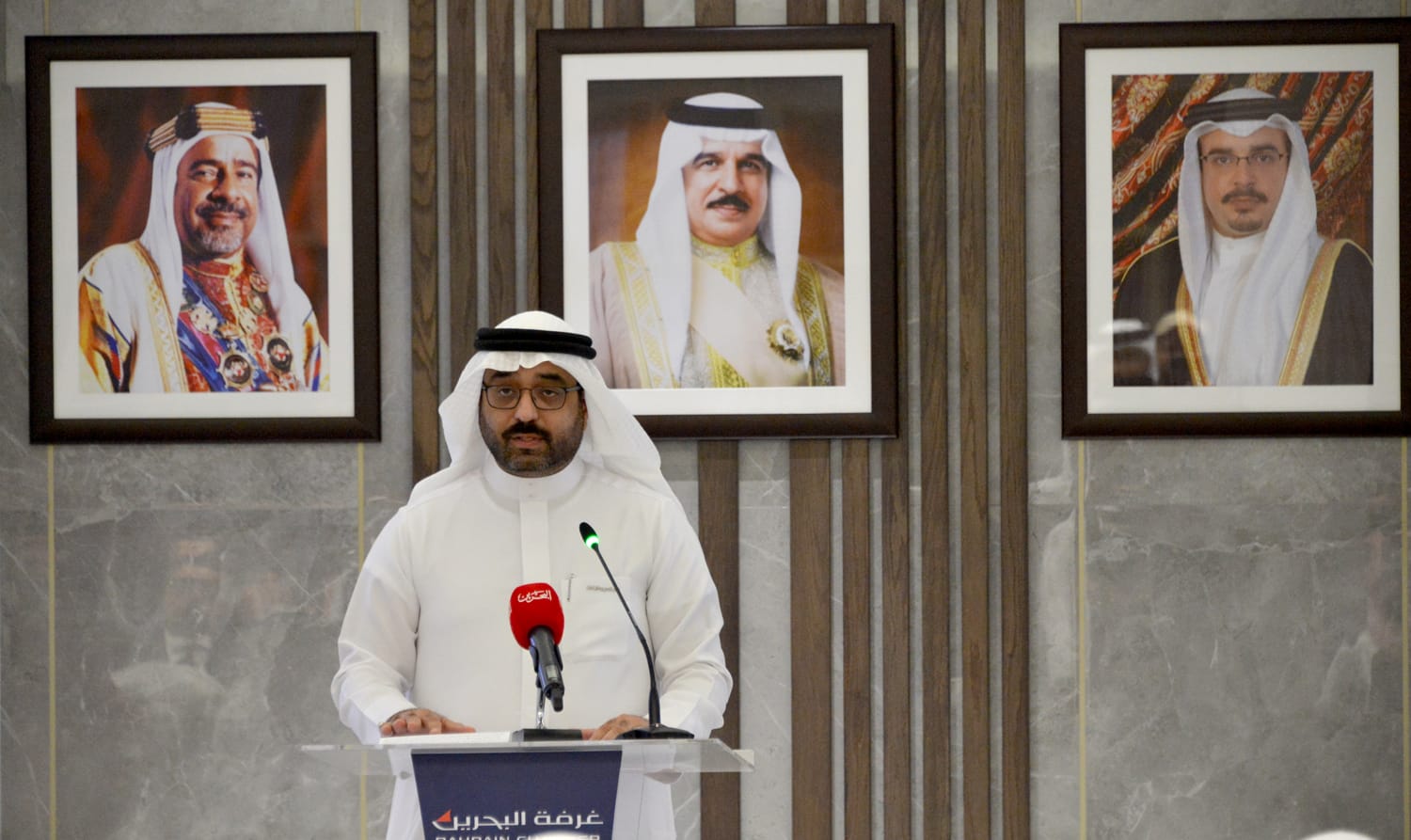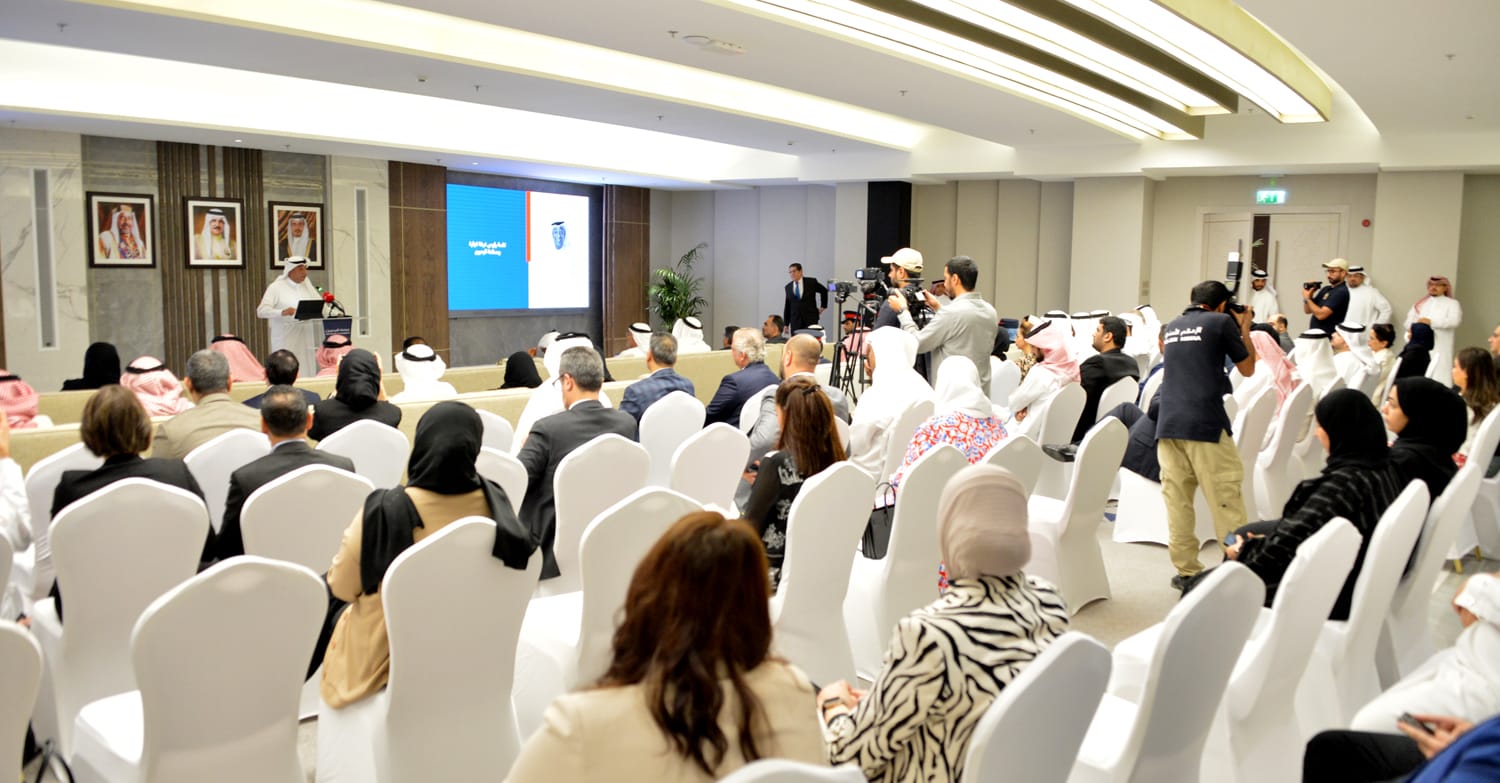Joint Working Group on the Establishment of a Mechanism for Implementing the Law on Alternative Sanctions Holds an Introductory Meeting with Private Sector Entities
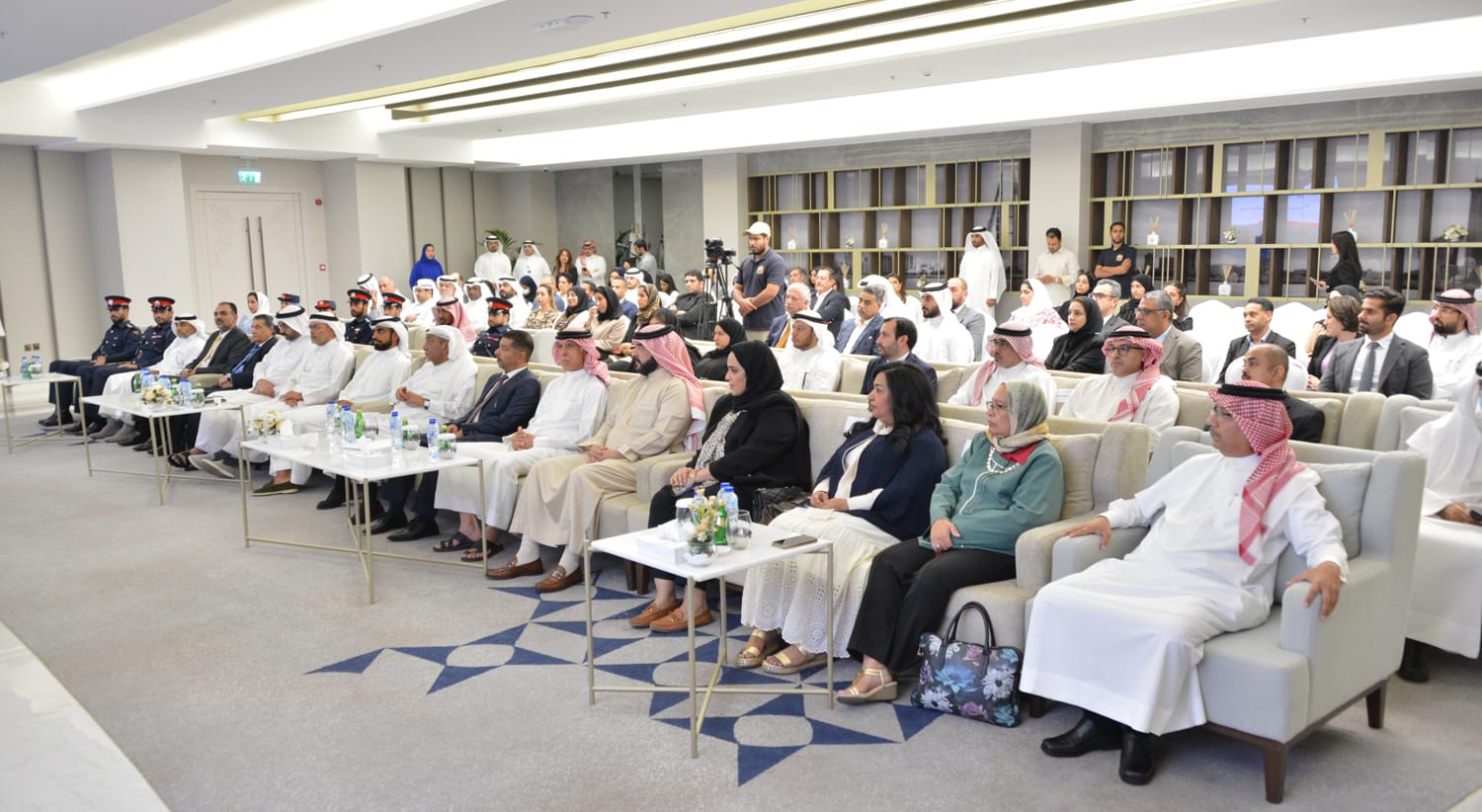
The Joint Working Group on the establishment of a mechanism for implementing the provisions of the Law on Alternative Sanctions, with the participation of private sector entities, held an introductory meeting today at the headquarters of Bahrain Chamber of Commerce and Industry, with private sector corporates, to present the mechanism for implementing alternative sanctions and the role assigned to such corporates in this regard.
At the beginning of the meeting, which was attended by a number of journalists and representatives of the local media, Eng. Ali Ahmed Al-Derazi, Chairman of the National Institution for Human Rights (NIHR) and Head of the Joint Working group, pointed out that, within the framework of the vision of His Majesty King Hamad bin Isa Al Khalifa, King of Bahrain, which states His Majesty’s interest in applying the highest standards and principles of human rights and his Majesty’s humanitarian directives to expand the application of the Law on Alternative Sanctions and Measures for those entitled to them, the NIHR, in partnership with the Ministry of Interior, Ministry of Labour, Bahrain Chamber of Commerce and Industry, Bahrain Development of Small and Medium Enterprises Society (BDSMEs Society), Labour Market Regulatory Authority and Labour Fund (Tamkeen), established a Joint Working Group on the establishment of a mechanism to ensure the implementation of the Law on Alternative Sanctions and Measures for private sector corporates and the role assigned to them.
He continued: “This resulted in organising this meeting with representatives of private sector, believing in the importance of its participation in the application of alternative sanctions and measures, based on the principle of social responsibility, to contribute to providing job opportunities, careers, community service work and rehabilitation programmes to be assigned to the convicts”.
He added: “This will contribute to a shift on the level of activating alternative sanctions on a larger scale to ensure the involvement of the beneficiaries of the programme in society and encourage them to continue giving to their families and their country, noting the NIHR’s conviction of the importance of establishing broad partnerships with various different parties and sectors in society, in order to achieve the lofty civilized vision of the Great King, in the field of promoting human rights and protecting society, while ensuring the enforcement of the law at the same time, according to an advanced societal concept, in cooperation with partners and stakeholders at the national level.
Eng. Ali Ahmed Al-Derazi, Chairman of the National Institution for Human Rights (NIHR) and Head of the Joint Working group, stressed the real and serious desire of all partners to make this national initiative a success, which aims to enhance the possibilities for the effective implementation of the provisions of the Law on Alternative Sanctions and Measures, by expanding its application and involving everyone, including entrepreneurs and heads of private sector institutions in the process of implementing the provisions of the law, considering the private sector the main driver of the wheel of sustainable economic development.
He explained that the contribution to the implementation of this law is part of the national duty and community partnership, which is fully in line with the vision of the Kingdom of Bahrain and its aspirations to be a model for all countries of the world in the optimal application of all that is stated in national legislation and international standards that focus on consolidating the principles of development in the justice and judiciary system.
Al-Derazi praised the prominent role of the Ministry of Interior in implementing the provisions of this law, which contributes to the integration of the beneficiaries of the convicts into society, in order to prevent crime and its recurrence, and to strengthen the position of the Kingdom of Bahrain in the field of human rights in line with the highest international standards.
Eng. Ali Ahmed Al-Derazi, Chairman of the National Institution for Human Rights (NIHR) and Head of the Joint Working group, called on all corporates and business establishment in the private sector, based on national duty and social responsibility, for solidarity and cooperation in order to exert more effort to enhance awareness among all parties of the importance of participating in the implementation of the provisions of the Law on Alternative Sanctions through society’s acceptance of the convicts and their assistance in integration, providing them with jobs and making them productive people, with the aim of achieving the social and humanitarian goal sought by the legislator and intended by the law.
At the conclusion of his speech, he expressed his appreciation to all participating parties, expressing his hope to enhance joint cooperation to transform challenges into opportunities to contribute to promoting sustainable development in Bahrain.
In a related context, His Excellency Sheikh Khalid bin Rashid Al Khalifa, Director-General of the General Directorate of Implementation of Alternative Sentences and sanctions at the Ministry of Interior, expressed his sincere thanks to the NIHR the Bahrain Chamber of Commerce and Industry for their efforts in the past period and their continuous cooperation with the Ministry of Interior, as well as their continued support to activate the partnership with the private sector in implementing alternative sanctions.
Director-General of the General Department for the Execution of Alternative Sentences and sanctions at the Ministry of Interior stated that the private sector is a major sector and a key partner alongside with the public sector in Bahrain, and that involving it in the implementation of alternative sanctions is an implementation of the directives of His Majesty the King to expand the implementation of alternative sanctions, in order to extend to the important aspect, which is training for employment of their beneficiaries.
He referred to the joint coordination in providing new opportunities and creating more diversity and options for the beneficiaries of alternative sanctions, in order to ensure their effective benefit and achieve psychological, behavioural, economic and security stability for them and for the society, and support their return to normal life and involvement in the labour market.
For his part, Mr. Samir Abdullah Nass, Chairman of the Board of Directors of the Bahrain Chamber of Commerce and Industry, stressed that the initiative of "Coordination with the Private Sector to provide Job Opportunities within the Alternative Sanctions Programme" is based upon the royal directives of His Majesty King Hamad bin Isa Al Khalifa, King of the State, and with the follow-up of His Royal Highness Prince Salman bin Hamad Al Khalifa, Crown Prince and Prime Minister, in continuing to expand the application of the Law on Alternative Sanctions, in a manner that ensures enhanced benefit from it and the achievement of its noble goals for the individual and society.
The Chairman of the Chamber said that the business institutions and corporates in Bahrain have played, for many years, an influential role in the development and service of society, and have never given up or failed to assume their responsibilities towards performing this role in order to contribute effectively to achieving sustainable development at all levels, and leave their mark on the path of giving and service of the homeland and citizens.
He pointed out that business institutions and corporates are participating today towards achieving what they all aspire to in the service of society, through an initiative that we consider the most important towards implementing alternative sanctions provisions in a way that achieves the public benefit and the requirements of justice in all its dimensions.
For his part, Mr. Ahmed Subah Al-Saloom, Head of Bahrain Development of Small and Medium Enterprises Society (BDSMEs Society), considered that Law No. (18) of 2017 on Alternative Sanctions and Measures is a qualitative leap that has strengthened the position of the Kingdom of Bahrain at the international level, as it is one of the first countries in the Arab world in applying alternative sanctions and giving the convicts a new chance in life that makes them eligible for reintegration into society.
He said: "We extend all thanks and gratitude to all those who contributed and supported the idea of the existence of this law, headed by the King of Humanity, His Majesty King Hamad bin Isa Al Khalifa, King of the Great Country, and His Royal Highness Prince Salman bin Hamad Al Khalifa, Crown Prince and Prime Minister, for their continuous directives to continue expanding the application of the Law on Alternative Sanctions and Measures, given the noble aims of this law for the individual and society”.
Mr. Ahmed Subah Al-Saloom, Head of Bahrain Development of Small and Medium Enterprises Society (BDSMEs Society) explained that any sanction entailing deprivation of liberty means that the convict has lost his source of livelihood or job to support himself and his family, and upon applying alternative sanction to any convict, he will need to engage in society and obtain a job or a source of income, and here comes the role of civil society institutions and the private sector alongside with the executive authority.
He pointed out that the decision of the Minister of Justice, Islamic Affairs and Waqf to add the "Business Entrepreneurship" programme, which is supervised by (BDSMEs Society), to the rehabilitation and training programmes for those sentenced to alternative sanctions and the procedures for implementing them, opens the way to play a societal role by launching an initiative for partnership between the private sector and the executive authority in the mechanism for implementing alternative sanctions, pointing to the pride of the Bahrain Society for the (BDSMEs Society) in its role in this initiative by providing training opportunities for beneficiaries of alternative sanctions and working to prepare them to become owners of commercial records and entrepreneurs.

